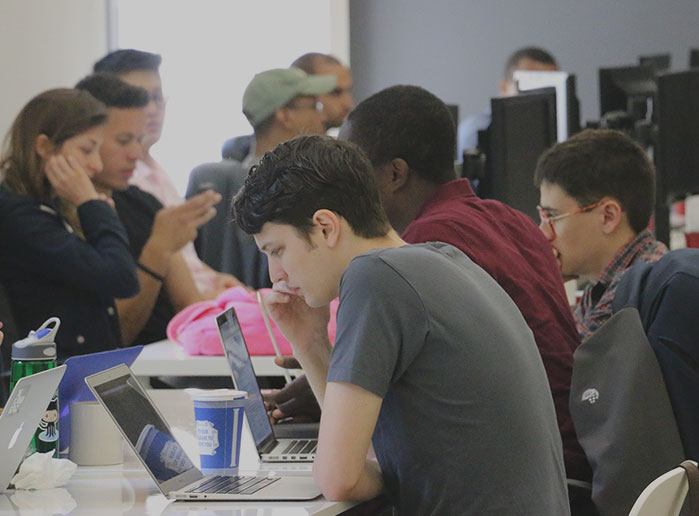We’ve all heard that coding is a must-have skill for the future—but if you aren’t responsible for building your company’s website or other digital products, you may think that doesn’t mean you. But the truth is – learning a few coding tricks of the trade can be a huge benefit to anyone.
If you’re a new, non-, or never-thought-I’d-be-a programmer, HTML, the structure that supports the web; and CSS, the language that makes the web beautiful can be a great place to start.
Here are five reasons why:
1. Be more impressive in your current role
Learning to optimize your daily tasks with code is a great way to wow managers and co-workers. Something as routine as sending an email or drafting a report can be transformed with a facelift and updated formatting through a few simple lines of HTML code.
For marketers, suddenly your posts to your company’s blog can come to life with custom features that you are creating. And you’re able to develop, test, and optimize landing pages. Designers can leave the world of Illustrator and Photoshop and actually implement their designs. And full-stack developers can build a front-end for their back-end services.
2. Use it to edge into a new career
Because coding is so essential to all industries nowadays, pairing HTML and CSS with your existing experience can be a good starting point if you want to slingshot into a new career—especially if you’re passionate about putting in the time and effort to truly master these and other front-end languages. Plus, communicating your mastery by building projects to demonstrate how quickly you’ve scaled the learning curve can make you quite an attractive candidate many startups.
3. Grow your programming reputation
If you do go on to become a full-time programmer, building upon what you already know will be a smoother process if you have a strong grasp of the structure that supports the web. Learning HTML and CSS will help you understand how a language like JavaScript operates on a webpage and will give you a stronger foothold if you choose to begin learning that language. It’s also a good place to start because it gets you used to the iterative development flow that you’ll need as a programmer; you get immediate feedback which means, in almost every case, you can see the results of what you have changed right away.
4. Position yourself as a valuable specialist
Many full-stack developers have a really broad programming skillset, so they may not always be specialists in a particular part of the stack such as HTML and CSS. By understanding the basics of HTML and CSS, you can start building a foundation to eventually become a front-end specialist. These skills are often especially helpful for consumer-facing products.
5. Your never know where a new skill can lead you
Just look at our Co-Founder and Dean, Avi Flombaum: fascinated with the early world-wide-web, he began to teach himself HTML and CSS in the fifth grade, which set him on a lifelong path of coding, helping him land prestigious programming jobs and, ultimately, start Flatiron School.
Start learning HTML and CSS today
Opening your eyes to the world of HTML and CSS can show you much, much more than just a pretty webpage. If you’re interested in learning HTML and CSS, give our new online course a try.
Written byFLATIRON SCHOOL
Make yourself useful.

